The Economics and Statistics Division maintains archives of previous publications for accountability purposes, but makes no updates to keep these documents current with the latest data revisions from Statistics Canada. As a result, information in older documents may not be accurate. Please exercise caution when referring to older documents. For the latest information and historical data, please contact the individual listed to the right.
<--- Return to Archive
For additional information relating to this article, please contact:
June 29, 2017EMPLOYMENT, EARNINGS AND HOURS, APRIL 2017 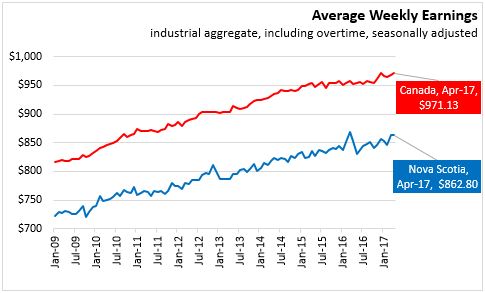
Nova Scotians' average weekly earnings (including overtime, seasonally adjusted) decreased $0.97 per week (0.1 per cent) from March 2017 to $862.80 in April 2017. The current level is up 1.1 per cent from its level in April of last year. Canadians' average weekly wages rose 0.4 per cent from March to $971.13 in March 2017, up 2.0 per cent from April of last year.
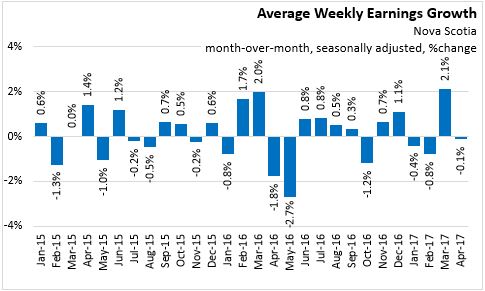
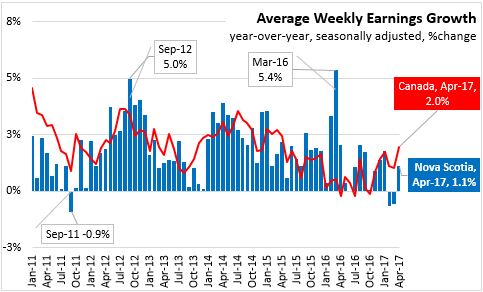
In general, changes in weekly earnings reflect a number of factors, including wage growth; changes in the composition of employment by industry, occupation and level of job experience; and average hours worked per week.
Across the country, monthly average wages were up for April in four provinces; the Atlantic provinces and Saskatchewan showed monthly declines while British Columbia remained unchanged.
Through the first four months of 2017, average weekly wages have been growing fastest in the Manitoba (+2.7%), Newfoundland and Labrador (+2.6%), Saskatchewan (+2.3%) and British Columbia (+2.0%). In year to date terms, Nova Scotia's average weekly wages have averaged 0.4 per cent above the levels reported for the same period in 2016. Average weekly wages declined in Alberta compared with the average of the first four months of 2016.
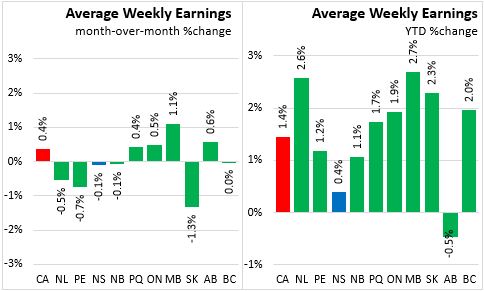
In April 2017, average weekly earnings increased 1.7 per cent (on a month to month basis) in Nova Scotia's goods sectors while service sector average wages decreased 0.8 per cent.
On a year-to-date basis, average weekly earnings are 0.4 per cent higher in the first four months of 2017, with a 2.1 per cent increase in the goods sector and a 0.1 per cent increase in the services-producing sector. Goods earnings showed increases in Construction and Manufacturing and in the services sector, the largest increases were seen in Finance & Insurance and Support Services.
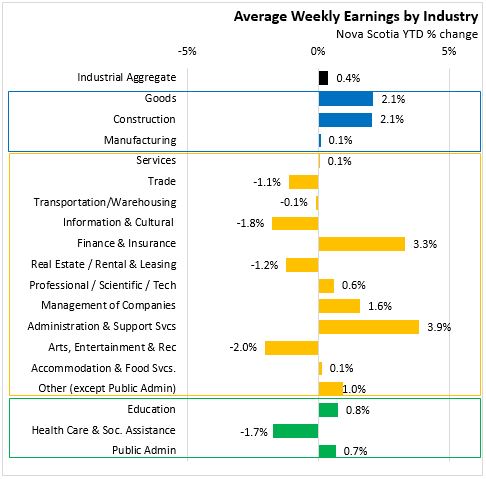
Source: Statistics Canada, Survey of Employment, Payroll, and Hours. CANSIM Table 281-0063, 281-0049
<--- Return to Archive